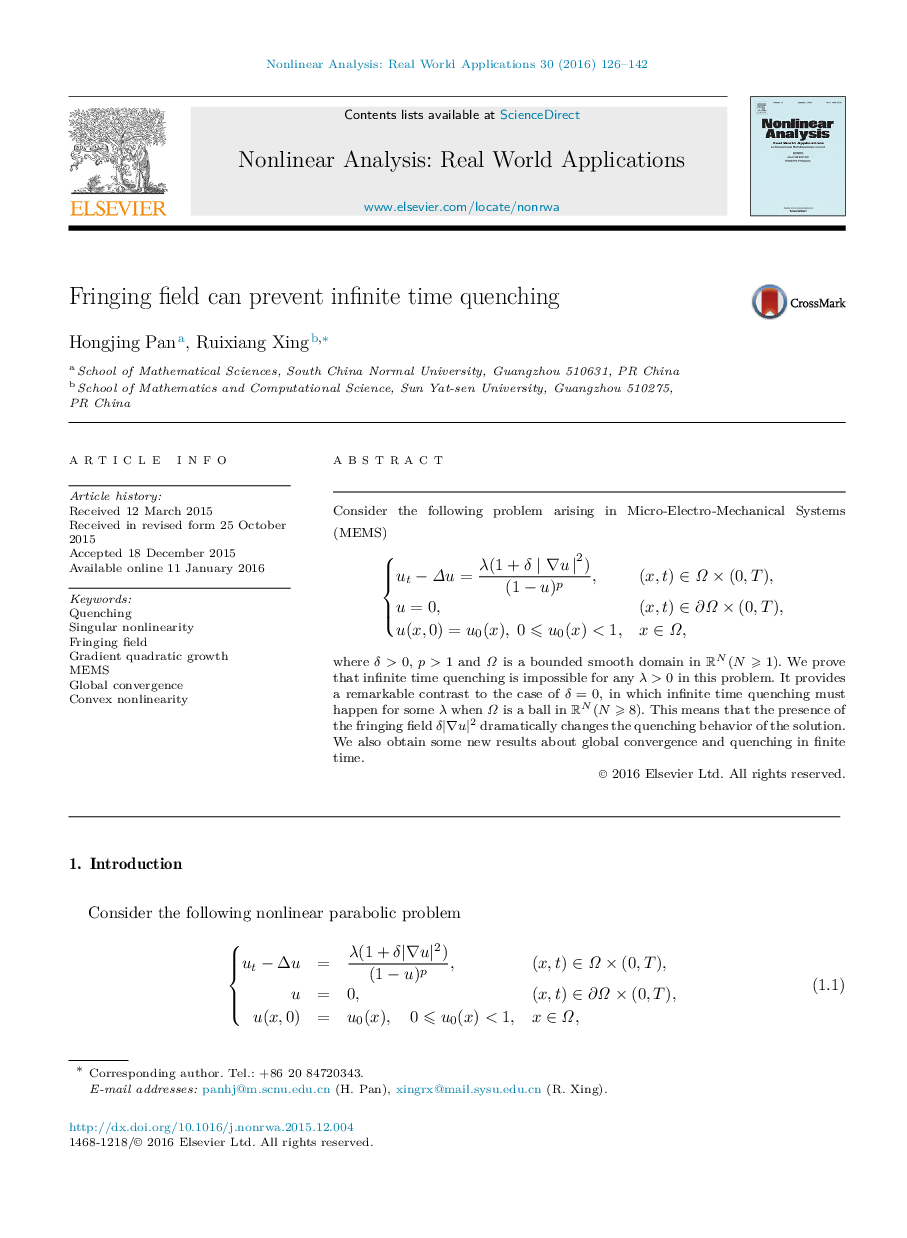| Article ID | Journal | Published Year | Pages | File Type |
|---|---|---|---|---|
| 837007 | Nonlinear Analysis: Real World Applications | 2016 | 17 Pages |
Abstract
Consider the following problem arising in Micro-Electro-Mechanical Systems (MEMS) {ut−Δu=λ(1+δ∣∇u∣2)(1−u)p,(x,t)∈Ω×(0,T),u=0,(x,t)∈∂Ω×(0,T),u(x,0)=u0(x),0⩽u0(x)<1,x∈Ω, where δ>0δ>0, p>1p>1 and ΩΩ is a bounded smooth domain in RN(N⩾1)RN(N⩾1). We prove that infinite time quenching is impossible for any λ>0λ>0 in this problem. It provides a remarkable contrast to the case of δ=0δ=0, in which infinite time quenching must happen for some λλ when ΩΩ is a ball in RN(N⩾8)RN(N⩾8). This means that the presence of the fringing field δ|∇u|2δ|∇u|2 dramatically changes the quenching behavior of the solution. We also obtain some new results about global convergence and quenching in finite time.
Related Topics
Physical Sciences and Engineering
Engineering
Engineering (General)
Authors
Hongjing Pan, Ruixiang Xing,
